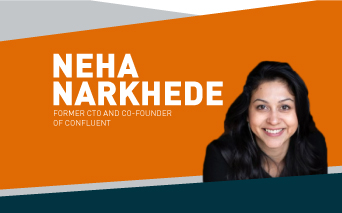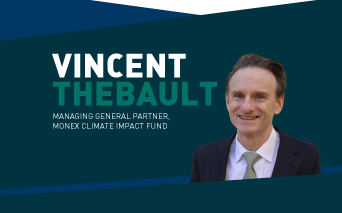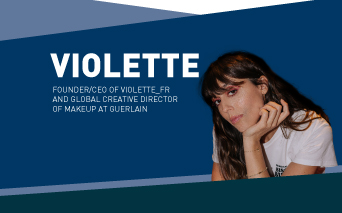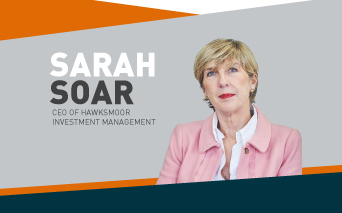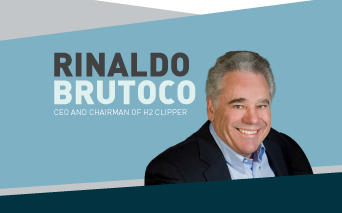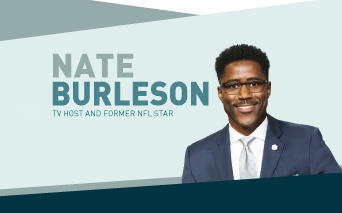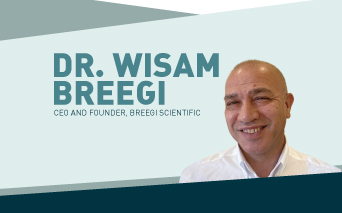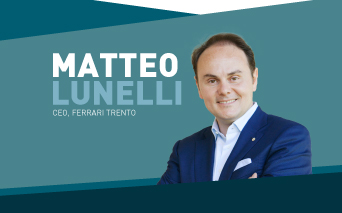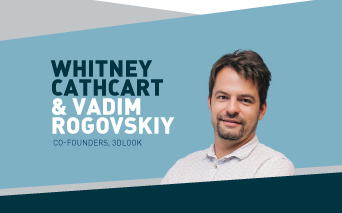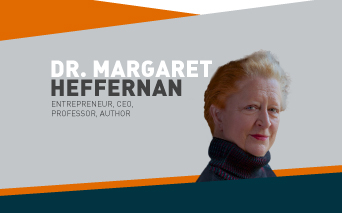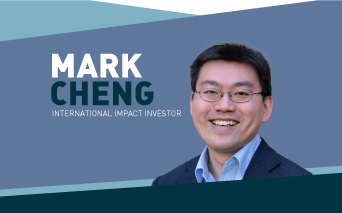Podcast
Motor racing, passion and the pursuit of perfection
1 February 2022 | 27 minute listen

Episode 14 of Talking Success with Aasmah Mir
In this episode, Aasmah talks to Ron Dennis, philanthropist and Founding Shareholder and former Chairman and CEO of the McLaren Technology Group, about how passion has been the driving force behind his successes, the decision to step away from Formula 1 and transition into a new career chapter and his pursuit of perfection and ambition to win in everything he does.
Podcast host | Aasmah Mir
Aasmah Mir is an award winning broadcaster and journalist. She currently co-hosts the Breakfast Show on Times Radio and writes a regular column for The Times.
Guest | Ron Dennis
Ron Dennis, is a philanthropist, Founding Shareholder and former Chairman and CEO of the McLaren Technology Group, which includes one of the UK’s leading Formula One teams.
Since first buying shares in McLaren in 1980, Ron subsequently increased his shareholding and assumed control of the Group in 1982, thereafter leading it to numerous successes in Formula One world championships. Under his leadership, McLaren Automotive was created and grew to become a world leading producer of advanced technology sportscars and supercars.
Ron sold his shareholding in the Group in 2017 and has since dedicated his talents to charities and other philanthropic activities, including leading a campaign to help provide food for NHS workers during the pandemic through his Family foundation, Dreamchasing, and committing to significantly reduce the incidence and impact of youth sports injury through Podium Analytics, an NGO launched in September 2021, of which he is Founder and Chairman.
Note: We have provided a transcript of the discussion in this podcast if you are unable to listen to the audio version. This transcript is generated using a combination of speech recognition software and human transcribers and may contain errors.
Ron Dennis (00:38): The reason I used to inwardly smile is because no one could ever throughout my life put more pressure on me than I put on myself, so I would just shrug it off.
Aasmah Mir (00:52): Ron Dennis’s story in motor racing started from humble beginnings, but he went on to become a legendary figure in the automotive world as the founding shareholder, chairman and CEO of the McLaren Technology Group. Back then the fledgling company employed just 70 people. By 2017, at the time of selling all of his shares, the Group had grown to have a workforce of over 3,500, with an annual turnover of more than £900 million and an equity value of £2.4 billion. Since then, Ron has had an active involvement with various government directives and programs, sharing his expertise and working for the good of the future and future generations. He’s focused on philanthropic work, including Dream Chasing the Family Foundation he formed in 2007 and which continues to help young people to achieve their aspirations and following the start of the pandemic, he has worked on efforts to support frontline, NHS workers and other crises relief. Ron, thank you so much for joining me. I’m going start with, with one of our big questions. When you think about the idea of, of having a film made of your life, a biopic, what do you think it would be called?
Ron Dennis (02:05): I think it would have the same name that I currently intend to use for my autobiography, which is the red thread. I think a life has many strands that woven together form your life, but each strand has an integral component. So the red thread was used in former times by the Admiralty to be able to detect whether a ship was of British origin. So they wove red threads into every rope on the ship so that if the ship was subsequently stopped or captured that they could at least basically cut a rope and immediately determine whether it was an Admiralty boat or not. It’s always intrigued me that this would be, let’s say an identity, a fundamental identity of your character, what drove you, what actually links your life together. So it will probably stay as the title, but that would certainly be the title of the film.
Aasmah Mir (03:18): I like a title of a film or a book that, that, that needs a bit of explanation. I think if something’s too obvious, it’s almost a let-down. So that’s a great title. Let’s move on or move back and talk about the beginning because obviously it underpins everything, everything, since you started out working as a mechanic on a Formula One team, how did that opportunity come about?
Ron Dennis (03:41): Well, obviously preceding that was an apprenticeship and within that period of time, opportunity presented itself. Some of the opportunity I like to feel was creative for myself and ultimately I would say it’s my work ethic, which was extreme and my passion, which was obvious that gave me the opportunity to enter motor racing at a very early age. I left school at 16. I had the passion, but not the direction. I knew that I enjoyed understanding complex mechanical things and all engines have some level of complexity, but racing engines are the sort of the highest level of pedigree that you can find certainly in terms of industrial combustion engines, but then of course, you know, there is phenomenal amounts of related technologies. The whole thing becomes more and more complicated as you seek greater performance and really seeking greater performance has always been an important element of my life. I would in a latter part of my career, inwardly laugh when people around me would try to apply pressure normally towards the latter part of that part of my career when, you know, either the financial performance or racing performance, didn’t meet their expectations. The reason I used to inwardly smile is because no one could ever throughout my life put more pressure on me than I put on myself, so I would just shrug it off and that character trait was there from the very, very beginning as was my obsessiveness with detail.
Aasmah Mir (05:48): So you were born with it?
Ron Dennis (05:49): I think I witnessed its benefits as a result of my mother’s obsession with having a perfect home in which to raise her children.
Aasmah Mir (06:01): That is so interesting.
Ron Dennis (06:02): I think it was more I observed and it’s very infectious and I mean, it’s compulsive obsessive behaviour. The consequences in the latter part of my life is of course it makes you very difficult to live with because a true compulsive obsessive seeks in a, when it’s being used as a positive, seeks perfection when perfection can never be achieved, not for a compulsive obsessive, there is no detail that is too small and therefore you are difficult to live with. I think I observed in my father, some elements of him wrestling with my mother’s objectives, but for me it served me so well. It has made me what I am. And if anyone had offered me a pill that would’ve taken it away or would’ve laughed because it is absolutely in my thoughts and my own beliefs, it’s, you know, it, it is the thing that has always given me an edge and has always made it possible for me to sometimes achieve what most people would say would be impossible, you know, to go from those origins, to building a group of technology companies. Even I look back on it sometimes and have some sort of surprise, but at the time you just get on with it and you know, you don’t spend too much time looking at the reasons why, because you’re constantly seeking ways to be better. You know, so for me in the period of my life that I was, you know, Grand Prix racing a Monday morning would always be a first conscious moment would be, you know, did we win, did we lose? If we lost, there was a window of time where I allowed myself to feel you know sort of selfish pain. You know, I wouldn’t say wallow in pity, self-pity, it was just a period of time where, you know, you wrestle with it. But the moment my, sort of feet touched the floor to the side of my bed that would be what I would call my sympathy window and then I always felt that leading by example and pushing forward was my responsibility. That was one of the fundamental things of leadership, you know, you’ve got to accept the responsibility of leadership and you quickly have to come to terms that in success, most people point to themselves and talk about their role that they played in that success. And in failure, they just point to the top to the leadership and say, you know, we have failed because of errors of judgement being made by that leader. This is the consequence of leadership. It’s just something you have to come to terms with.
Aasmah Mir (09:10): This pursuit of perfection did that then in the early days lead you to widening or narrowing the goal posts? In other words, thinking, okay, I’ve done this now, I’ve [bossed] it completely, I’ve perfected it, I now need to go to the next level where things are going to be harder and I’m going to learn to perfect that as well. Did that inform your move from being a mechanic starting your own team? I mean, I know that was a long time ago, but was that the idea behind it?
Ron Dennis (09:39): I mean, for me, passion is everything. The first thing you have to understand is sacrifice and it is easy to sacrifice everything else in your life if the passion is strong enough to let’s say balance the books. In my own case, you know, I sacrificed a lot of personal relationships that would’ve been stronger in the early parts of my life if I’d invested more time in them. I consciously realised that to climb fast I would have to take risk. And, a lot of the risk was financial and the consequences of taking a financial risk and it materialising at a loss is that you take everybody down around you to a certain degree and that would include the people that were in your life, outside your business. And it was for that, that I consciously decided whatever relationship I got into I would never get married until I was financially stable enough that risk would not bring hardship to either my wife or those people around me, my parents. That didn’t make me risk averse, if anything, the opposite. It put me in a position where I really did risk everything many times in my career and I would say nobody ever realised what I was risking at the time, because that of course would have given them a commercial advantage. If they knew how much out on limb you were, they would’ve never backed you because of course the consequences would’ve been bad for them as well.
Aasmah Mir (11:33): By the early 1980s, you were in control of the McLaren team and I wonder, what would you say your kind of mindset was at that time? Clearly underpinning it all is you want to win, you want to be the best, you want everyone to be the best. You want everyone to come in every day and give 100%. I know it’s a cliche, but it’s accurate. So what would you say at that point when you were in charge and it was reasonably newish to you, what was your mindset at that point?
Ron Dennis (12:03): Well I think it’s important to set the scene first. I doubt whether there’s anything that’s occurred in Grand Prix racing technically that has been greater than the introduction of carbon fiber. It created a whole host of not only performance advantages, but almost certainly it became a survival cell. And if you look at most accidents today, the big ones it’s incomprehensible the driver just realises his seat belts and walks away and I feel very responsible for that. You know, there was two people involved, myself, John Barnard, the designer together we broke new grounds with him taking the technical decisions and me totally supporting him and generating the revenue to make it possible and that gave us the ability to do a sort of reverse takeover of McLaren and at different moments of time, I had different levels of equity. Sometimes well in excess of 50%, especially in 1982 when I bought out the other partners and I quickly realised that, you know, the equity, it was relevant to the value, but it wasn’t relevant to what you earned out of a company. So I took a very conscious decision not to get obsessed with how much equity that I held in the company at any one time, because it was clearly the easiest way to raise capital was to sell equity. But I had to have absolute control. I mean to say I was a control freak would be an understatement and it’s important to realise that if you’re taking the entire responsibility of a company on your shoulders, you can’t do that unless you have complete control. So I constructed, for myself, a service contract that ran pretty much intact from 1982 to 2017. It was renewed sometimes for seven years, sometimes for five years. It carried a level of reward in terms of salary that was extremely high. It was in the millions, balanced given my entire life to the company. But even when irrespective of the equity I held, I have complete control of every single decision hire and fire, drivers, everything. And as the company grew, suddenly the value was so high that the investors that had originally invested to enjoy the journey and participate in Grand Prix racing, found it was one of the biggest assets that they had. And it didn’t sit comfortably that they had no control save for an opinion at a board meeting. And in the end, of course, they expressed an opinion, they applied pressure and I maintained the right to exercise every decision in the company. And I can understand, you know, it didn’t sit well. I always felt that my exit would be a private sale and that in the journey, which I knew was going to be long, I should be properly rewarded. And I had a lot of flexibility in my contract. I could have lived in Monte Carlo or Switzerland, but I’m fiercely patriotic and I just came to terms with the necessity to pay tax and flipped my contract into a net income. That might sound rather strange, but I never wanted to worry about money.
Aasmah Mir (16:13): Tell me a bit about your, the shift of your focus to philanthropy. Why did that happen and do you apply the same principles, or can you apply the same principles?
Ron Dennis (16:23): Well, I’m still a compulsive obsessive, so monstrous attention to detail. The shift really started at around about 62, 63 when I was very focused at changing direction at 65. Of course I am capable of saying the word retirement, but in reality it has no place in my mind. I, of course have given lots of talks to young people to inspire them and try and give back over the years and I would often start my speech by saying ‘I’ve never done a day’s work in my life’. I can’t say getting up every day has been great. And sometimes I’ve been a bit lethargic at getting to work. Normally on a Monday when we’ve lost a race or something, but in truth, I’ve loved everything I’ve done in my life and I’ve always pursued my passion with total commitment and that doesn’t get taken out of you just because you’ve got a directional change. So initially I thought I would change direction at 65, a lot of circumstances and, you know, I’ve lived the pain of divorce and inevitably divorce is quite costly and I couldn’t get my head around being less well-off and changing direction. So I, I was under a lot of pressure to continue for my shareholders at that point. So I decided to do another five years, but I was, it was quite difficult at sometimes because I just had this strong appetite to do something different. And so when I physically drove away, 1st of June 2017, for me it was the perfect ending and most people find it hard to believe that, you know, that was the best day of my McLaren story. Not because of anything negative, but because it actually represented a sort of full stop on that chapter of my life. Therefore I felt very comfortable. I’d achieved much more in that part of my life than I ever thought was possible when I was younger and I drove away with a firm conviction that I would change some aspects of my life and never go back to them. Nothing would’ve kept me in the company past the 1st of June, 2017. So then as faint as it was in terms of noise, there was a drum that I had at the very least to walk gently in unison with. So I just said, you know, I’m never going to have another drum that I walk to that is not controlled by myself. I put myself in the position where I could be philanthropic, but I wanted, I just didn’t want to sign cheques, what I spent the last two and a half years on and something that I passionately believe in. And again, I’ve been able to apply a great deal of attention to detail, bring together a high calibre group of experts to address a problem that I felt needed to be addressed, it’s absorbed a great deal of my time and satisfied the appetite that comes as a result of an obsession with detail. That plus a unique construction company that I’ve assembled, because I think it’s an industry that lacks technology in certain areas. I think I have a lot of experience coming out of my career and that can be very, very well applied to other businesses, other industries, and the construction industry is something that I’m fascinated with primary because I love building things and big things tend to be buildings. So, you know, that’s what I’m sort of toying around with at the moment.
Aasmah Mir (20:20): The title of the podcast is Talking Success, now you’ve already said that kind of your best day actually bizarrely was, was leaving, knowing what you had achieved. So if I were to ask you, at what point in your career you felt most successful, was it that day or was it another day?
Ron Dennis (20:38): That’s a really good question. I think my career, my, especially my business career was absolutely full of highs and lows. To look back on one particular high is actually quite hard. I’ve had a fantastic life. I hope that whatever takes me off this planet is not lingering because I’ve witnessed, too much of that with family members and friends. But if it suddenly happened and if I had that fleeting moment to check and balance my life, I know I would say it’s just been fantastic. There’s not a great deal. I would change. I suppose the thing I want to do is at least present my version of the truth in respect of those things that some people would perceive as being mistakes. There is something that one person said to me many, many years ago is don’t get mad, get even and in reality, it’s not how I’ve led my life, but I have been on the receiving end of the consequences of winning commercial battles and the strong desire for those people who lost having a desire to get even. And if I had to remember one moment, which set the scene for people getting even, it was when the teams way back disputed the process by which they felt the ownership of Grand Prix racing had been taken away from them. And as this unfolded over time, there was a moment at which it became apparent to the teams how badly they had been misled in terms of the future revenue. And that set the scene for what ultimately led to the company, McLaren being penalised for something that never in reality occurred. And of course my book will go into the microscopic detail of what happened when it happened, how it was constructed, how it was executed, but you know, one of the players was Machiavellian and earlier in my career, someone had sent me the complete definition. And I looked at this definition and realised that it’s never enough, just a wound you have to kill. And so I knew how challenging it would be, even though it was a pretty unpleasant experience, the outcome was, you know, we came back and won another world championship and nothing speaks louder than winning world championships.
Aasmah Mir (24:02): And you like winning. I can see it on your face. Just, just talking about it. You like winning and you know, what, what is wrong with that?
Ron Dennis (24:09): What, what executive in any company doesn’t like to win? You know, I mean, I, I don’t have any discomfort in telling people that even with my children, I would not let them win at board games. It’s not just about winning or succeeding. It’s about how you do it. What is your reaction when you do win? It doesn’t necessarily mean that everybody that wins just constantly wins to their own benefit and winning in a team has to be shared. It has to be shared. You know, no team is any stronger than its weakest link.
Aasmah Mir (24:53): We’re going to finish with some quick fire questions. So let’s try this, what is your favourite time of the Work day?
Ron Dennis (25:00): 7.30 in the morning.
Aasmah Mir (25:02): Very precise. Is there something that you’ve changed your mind about in life? It can be minor or major.
Ron Dennis (25:09): Only a fool doesn’t change his mind.
Aasmah Mir (25:12): You’re right there. What’s the biggest change that you wish you could make in the world?
Ron Dennis (25:18): An appreciation of each other’s cultures.
Aasmah Mir (25:24): Great answer.
Ron Dennis (25:25): Not having an understanding of other countries, cultures is the bedrock of misunderstanding.
Aasmah Mir (25:34): Is there a word, just one word that sums up either you or your working style?
Ron Dennis (25:42): Sacrifice?
Aasmah Mir (25:43): That’s it. Thank you so much, Ron Dennis.
Ron Dennis (25:47): You’re welcome.
Aasmah Mir (25:50); So where do you start with Ron Dennis? What a fascinating man. He’s so focused, he’s very ambitious and under his leadership, the McLaren Formula One team achieved 158 Grand Prix wins and 17 world championships, which is pretty amazing. And he created and led the diverse McLaren Technology Group through to exponential financial growth and phenomenal success. And this is also someone who really is very humble because he’s likewise done some amazing things as far as philanthropy is concerned, but he doesn’t shout about it. Thank you for listening to talking success. You can find out more about Withers on their website withersworldwide.com. If you’ve enjoyed what you’ve heard, please follow us on your podcast app to get updates on the latest episodes or leave us a review. Talking Success is a Feast Collective production. The producer is Leo Schick, the executive producer is Kate Taylor and I’m Aasmah Mir, goodbye.





